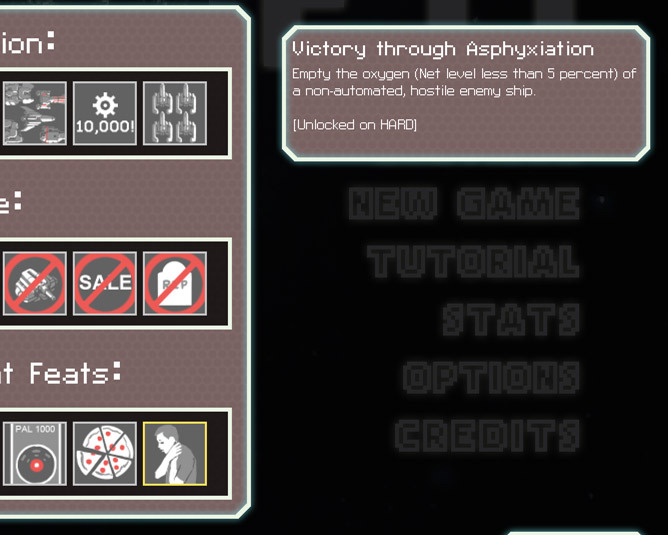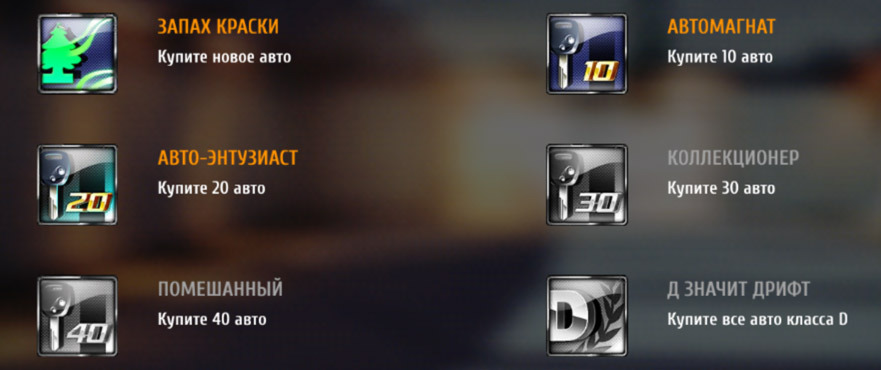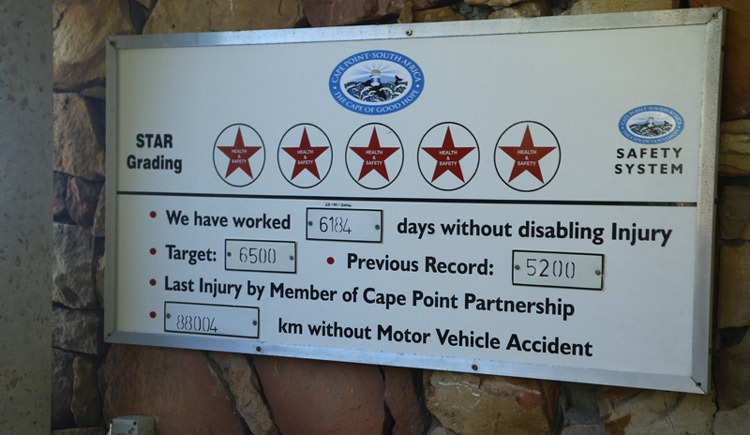Achivka as a player manipulation tool in GameDev

Achivka, which is given to you for watching your Galaxy Trucker
It is customary to think that achievements, “rewards” or “achievements” are a kind of medals, which are given for the stubborn passing of the game. In practice, they are absolutely necessary for the other: this is training, and additional quests, and the formation of the desired behavior, and much more.
Look at this achivka, for example:

')
It not only allows faster recognition of a user profile, but also contains important supporting information. According to it, we learn that the ranking of the topic is over 50 - this is good, and 30 posts with such a rating is a great achievement. That is, the task of accelerating the transfer of information about the user is solved here, and the goal is set (which is correct for the community), and the criteria for achieving this goal are indicated.
Reward
The first traditional goal of introducing achivok is a reward. She simply notes some progress or some special achievements. It's nice to go through achievements and strum with old medals: this increases player satisfaction. As a rule, such achivki are quite simple in the plot, like “passed on Hard”, “master of shotgun” and so on. The player somehow triggers them during the passage of the game, without doing anything extra. In fact, they describe his style of play. An additional advantage of such awards is that they are cool to share in social networks - after all, each of them is, in fact, a compliment. The younger the user, the greater the value of such an award and the desire to share.

Achivka Fallout: NV - list of completed quests
Learning and motivation
At the very beginning of the game, the achivka can serve as a signal “you do everything right” and support the player. You must have seen games where the right actions are reinforced during the period of the first or second game session with rewards. So the user learns that he is not just doing something right, but also moving on the scale of progress.
Additionally, receiving achivka, our user goes to look in the achiv-list. The achiv-list at this moment is all the same source of information about how to behave in the game - what is good, what you should strive for and how it all works.
Another important thing is that it is a little harder to abandon the game when you achieved something there. That is why after the first gaming session, the achiv-list is sometimes hammered by a quarter: the game designer tries to create for the player a sense of the work begun, serious success and, in places, wild luck. Just for the second time a person came into the game with the thought of how cool he is doing. And here we can expect unpleasant manipulation, followed by a sharp increase in complexity and an attempt to shake off Donat.
The easiest way of learning is achivki in the spirit of “First Network Game” or “Five Network Wins”. If their capture gives any bonuses in a single-campaign, the player will go and play on the network. And, with a certain probability, will be involved: the game “made” him play five matches and try out this mode.
New strategies
Deepening the gaming experience is an opportunity to perceive new situations and styles of play. Often, players “get stuck” in their comfortable style, and in order to show them other possibilities of the game, you need to change their thinking a bit. Accordingly, there are achivki who require a radical change in the pattern of behavior of the player. Here, for example, FTL:

To get this icon in the profile, you need, in fact, to defeat the enemy ship, depriving him of oxygen. Nearby there is an achivka for the landing of the whole team - when there is no one left on your ship, and so on. Each of them is a separate game party with a new approach to strategy.
Quest
A very important feature is the creation of a new in-game quest. In fact, this is another task, just a little non-standard. Here is an example from Portal:

But no less remarkable quest from Galaxy on Fire:

Such achivki are really alive: in fact, for those who have already completed the game and tried everything there, they give a good reason to play again. In sandbox games, they also create quests for those who cannot just walk the world and explore it.
More simple meta-quests like “collect 100 stars” also give an increase in replayability, but, you see, not so interesting.
New experience
Almost the same thing as learning a new strategy, the only other task is to increase replayability. Here is an example:

Few of the players will fly to battle with such a team. And then you have to not only collect four cyber soldier, but also fly a truncated team, without psionics, without snipers and in general somehow differently. New experience as it is.
Social definition
If achivki are open to other players, then they play the role of a kind of marks on clothes, such epaulets and medals. You can quickly and easily understand what kind of person you met. Again, on Habré it is very easy to distinguish between “old-timers” thanks to the appropriate achivka.
Only hardcore
Often the most hardcore achivki make the game go again, literally creating a new level of difficulty.
Here is Deus Ex:

If the difficulty level “Tin” without Praxis had been created, players would most likely have perceived it worse than achivka. The fact is that in the first case of the level, the game pushes you into frames and forces you to do something, and in the case of an achivka, you limit yourself and achieve victory beautifully, wildly overcoming. You are cool, not otherwise.
Monetization
What is not very pleasant, achivka often can serve the purposes of monetization. For example, if a player who has passed everything without putting money into the game has the entire list of points by 56 points, but one last 57 is missing, he probably wants it. And the 57th is designed so that you can get it only by doing something that is not without Donat - and you have to pay at least 1 extra dollar. This is still godly, but there are more rigid examples, calculated mainly on the child's psyche:

Achivki in real
Of course, achievements are used not only in games. More precisely, they are one of the strongest gamification tools for common processes. You may know the swarm achivka, which is given in 4sq. It is quite rare, and requires simultaneous actions of many people. So, it was built on several advertising campaigns. The simplest thing is “Come to our restaurant for a holiday - and at the same time get a swarm”.

Of course, achievements were also in the production system, in particular, in the USSR. “Employee of the month”, “Udarnik labor”, “20 blanks per shift”, “Stakhanovets” - this is a good motivation of employees (but only with proper implementation). The definition of the “badge” corresponds very precisely to the achivka - it is a reward that is not an order or a medal. Here is an example from Vika (who doesn't know - it was an important agricultural crop with industrial value):

Experiments were carried out with achivki "neat driver", "exemplary citizen" and others - they, again, simulate the desired behavior. For the sake of achivka the driver will become more accurate: for him it is a kind of bet.
In real life, mechanics are used for various loyalty programs. For example, airline gold cards are also a kind of achivka. But a more transparent example:

Here, and training, and the task of the image, and a demonstration that normal people travel by plane more often. Or - praise you for being a cool traveler when the scale comes to the right side.
In our practice, there are no achivok in the board games themselves due to the genre. Medal itself does not give out. We tried to experiment a bit in business, thought about giving out special badges for certain quests that would allow us to learn more effectively. An example - the first time he sold the spammer who called the KC, survived the New Year, participated in the rescue of a flooded warehouse, and so on. On the whole, the topic is probably interesting, but as long as we put it off, it is all too glossy and corporate. But it worked like this: in the production of advertising there was a bonus for a series of orders without jambs and delays. As I recall, the best “dry series” was three months without one day. When you play such a kind of bet, the material reward itself is of course important, but the motivation generated by the “argument” is even more important.
And finally, an example on the lift:

The main thing is that on the 6501st day men do not relax. After 17 years of waiting.
Source: https://habr.com/ru/post/228593/
All Articles